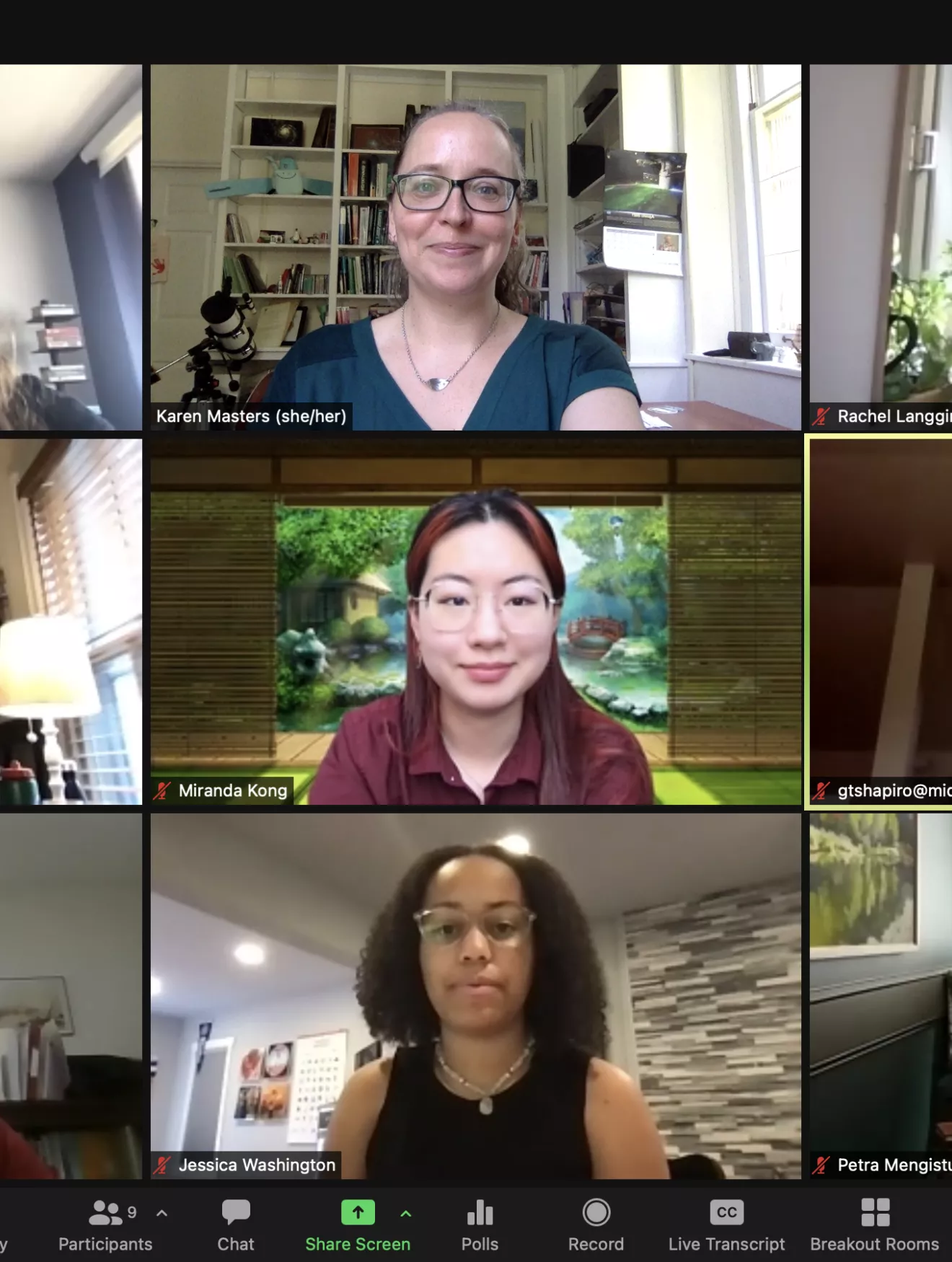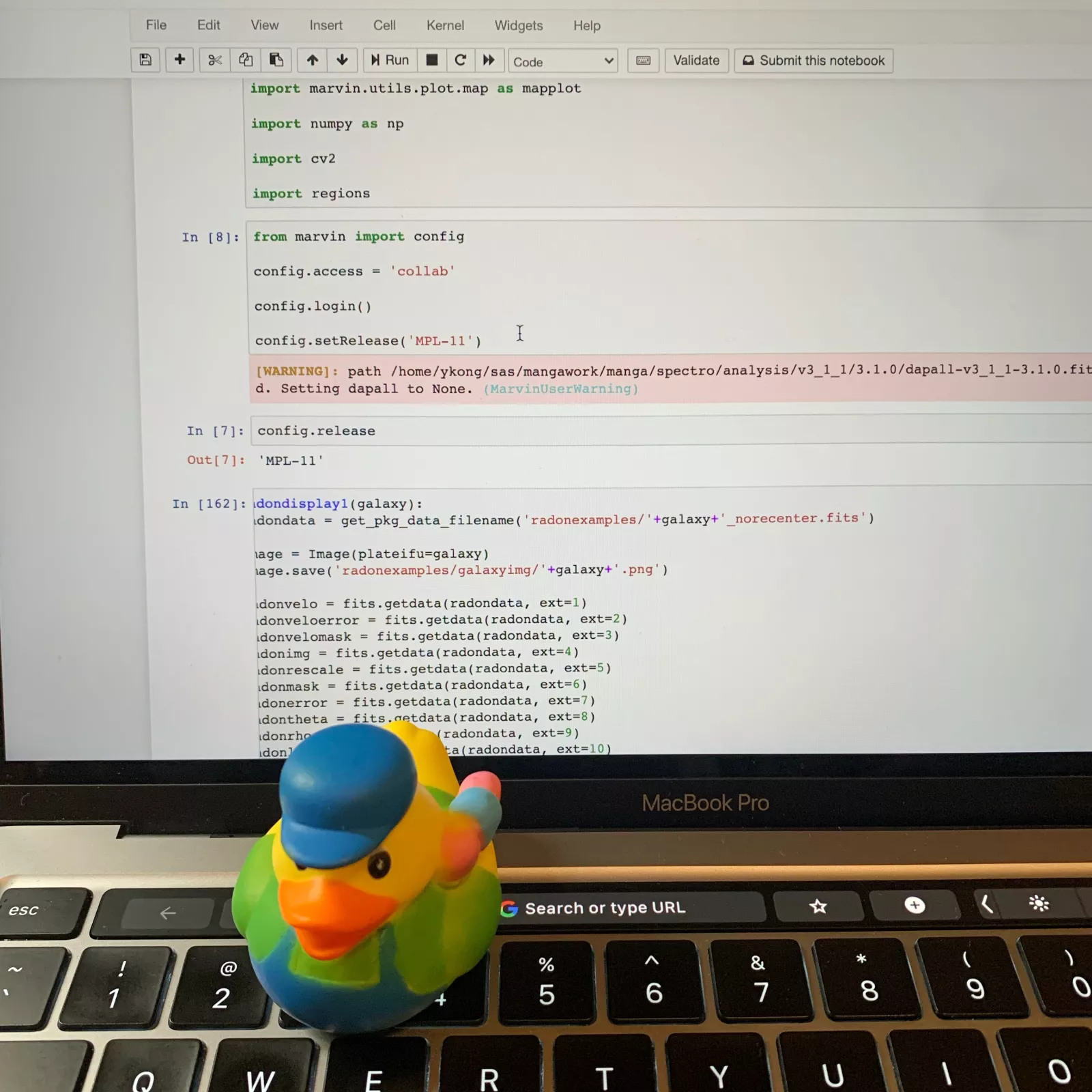
Name: Miranda Kong
Class Year: 2022
Major: Astrophysics and Mathematics
Hometown: Jilin, China
Internship Organization: Department of Physics and Astronomy, Haverford College
Job Title: Research Assistant
Location: Haverford College (remote)
What’s happening at your internship?
For my research this summer, I’m working on a project using galaxy data from the surveys SDSS MaNGA and GalaxyZoo, trying to identify any correlations between the existence of bars in galaxies and whether they have a distorted velocity field. Throughout the last semester, I have been doing minor preparation work to get myself warmed up with the coding and other analysis tools we use within the field of astrophysics. Going into summer, I have been able to carefully select a sample of galaxies with visible bars that exist in both surveys, and then started working on the data that they provided for these galaxies. Since it’s very difficult to tell and sort out distortions in the velocity field with coding, we had to do it by crowd sourcing, i.e. visualizing the data and ask for people to classify them one by one. To achieve this, I spent most of my first half of research writing a set of python code that can run through our sample of 2756 galaxies and produce a visual plot for each, which will go into the crowd sourcing phase. For this code, I have used the idea of radon transform that’s introduced by David Stark, a postdoc working in my group, in his 2018 paper, which allows me to plot the asymmetry of velocity field out as a single trace for identification. Once the code was ready to go, we ran it on a few subsets within the sample, and uploaded them onto Zooniverse, which is where the classification happens. This process asks for multiple persons to make the same choice (e.g., the shape of the trace, how it bends), and then this galaxy will be classified. At the current moment, we have a small number of galaxies that are ready to go, and I’m developing another set of code to help clarify the classification results and use it to match with their bar classifications, from which we will be able to examine any possible correlations.
Why did you apply for this internship?
This project is something that I have already started working on during the last semester, and I didn’t want to put it off for the entire summer. At the same time, I do personally consider summer a good chance to really immerse myself into some research and skill development, which I know will benefit me in the future when I work on my thesis, and even when in grad school. The project I’m working on is also a topic that I’m really interested in and excited for any results that might come out of it. Hence, I do think doing research this summer has been a great choice and worked perfectly for me.
What has been your favorite part of this internship?
What I appreciate the most is that our team is very relaxed, loving and collaborative. Having a great working atmosphere and people that are enthusiastic to help is something that really makes doing work more fun, especially when co-working students and professors get back to you as soon as they can. We are also very communicative and even quite informal within the group, e.g., sharing small accomplishments, pets, plots we are proud of, or things that are kind of work-related that we found funny. Everyone even got a rubber duck from our professor because she roots for the theory that explaining your code to a rubber duck helps with debugging. My duck Meg leaks a little and doesn’t make a squeaky sound, so I’m considering learning ASL for her.
What is most rewarding about your internship?
So far, I have found it very rewarding to get to experience more of the good feeling when your code finally works. I personally haven’t been the biggest fan in terms of coding and have low confidence when work progresses slowly or just gets stuck. This is the first time for me working on a bigger set of code and developing them mostly on my own and getting to experience the struggle fully. However, the moments that things finally work, or when I have found a smart way that solves a problem that could be more complicated, I do really enjoy them and find them so rewarding.
Visit the Summer Internship Stories page to read more about student internship experiences.
